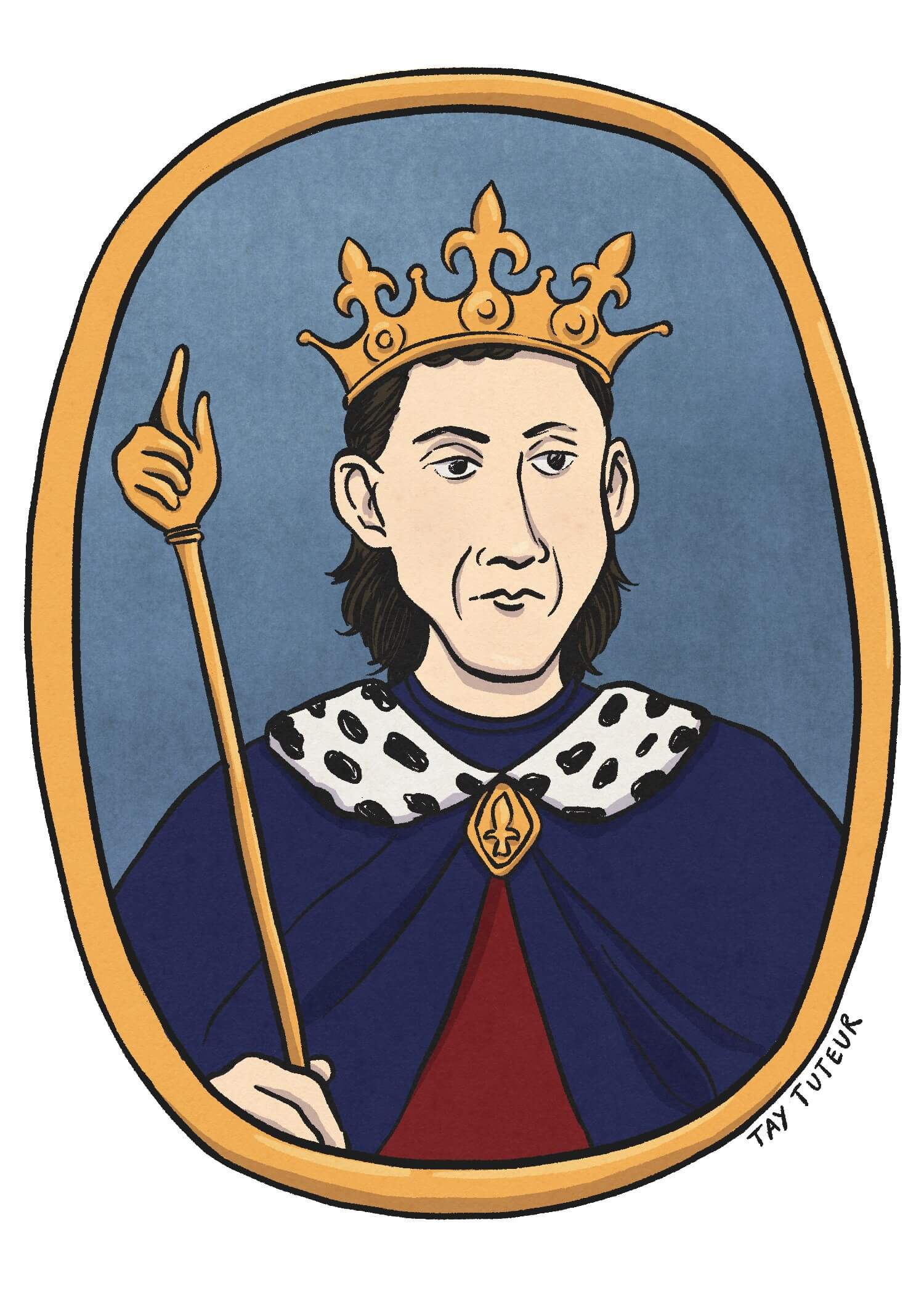
 What a curious thing, that one of the wealthiest, most enterprising royals in history is a canonized saint of the Franciscan Order, a group dedicated to simple, selfless lives empty of extravagance.
What a curious thing, that one of the wealthiest, most enterprising royals in history is a canonized saint of the Franciscan Order, a group dedicated to simple, selfless lives empty of extravagance.
The “Saint Louis” for whom the city of St. Louis is named is not the only Saint named Louis. He is, however, the only saint to also have been King of France. Born in 1214, King Louis IX was the ruler of France from 1226 until his death in 1270, a golden age in the country’s medieval period.
This “golden age” is largely attributed to King Louis’ benevolence. The Latin name for the Franciscans is Ordo Fratrum Minorum, which means “Order of Lesser Brothers”. Fittingly so, it is said that above all else, King Louis acted for the love of his God, and second for the love of his people.
As vividly recounted in the book “The Life of St. Louis” by John of Joinville, King Louis personally welcomed as many as 120 people, mere commoners to most, into his home each night. From his own kitchen, his guests were fed bread, wine, meat, and fish. He carved the meat and set it before his guests while the elderly and injured joined him at his table. And only after all of these people had been served did he eat or drink any himself. When leaving, each who dined in his house received from his hand a gift of money as an expression of gratitude for joining him.
As the legend goes, King Louis’s generosity extended beyond his own front doors. Walking through town, he was often witnessed cutting bread and pouring drinks for the poor he found. He delivered money to impoverished churches and hospitals. He also brought his political expertise in service to the common people, sitting on a blanket in public spaces to mediate any dispute brought before him.
In another display of his wise diplomacy, he restored a piece of land to England that had been justly claimed two generations prior. He did this even against his council’s advice, who saw it as weakness and felt other nations would too. What they saw as a blunder, King Louis knew was a profitable exchange. The Queen of France and the Queen of England were sisters, so the royal children were first cousins. This bond meant more to him than a perception of power through conquest. “Blessed are the peacemakers,” he reminded them. What he foresaw that his council didn’t was the way the gift ushered the King of England into France’s good graces, establishing peace the kingdoms hadn’t seen in years.
Reflecting on the life of King Louis eight hundred years later may offer us a rare perspective. Cultural norms are so far removed, even the word “King” has lost some of the weight and perhaps even meaning that it once held. However, it remains apparent that Saint Louis acted with unexpected selflessness, especially for his time. Where others had seen the throne as the pinnacle seat of profit, Louis saw his unique position as an opportunity to give. By unburdening himself from the expectations of royalty, King Louis IX earned his place as a Saint and as the namesake of our city.
Source: Joinville, Jean, et al. The Life of St. Louis by John of Joinville. Sheed and Ward, 1955.